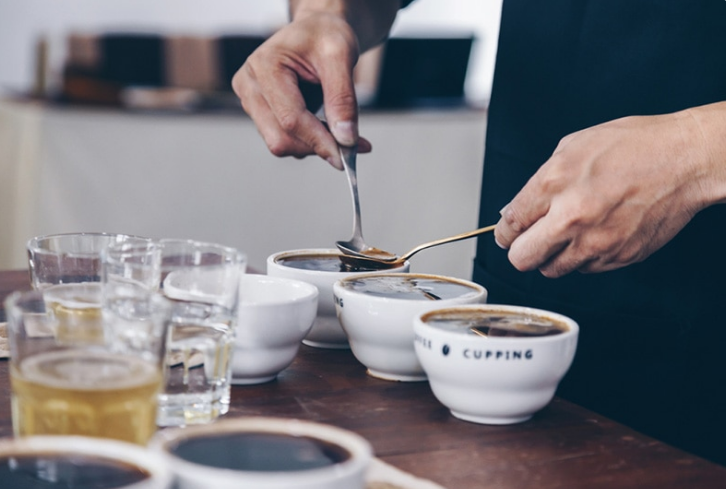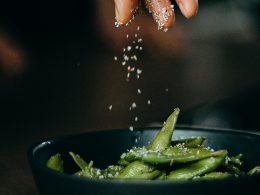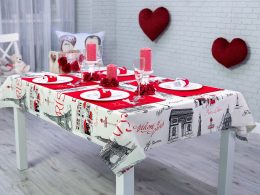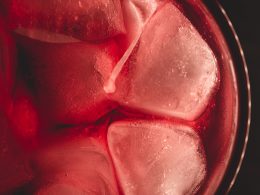Introduction
In the world of specialty coffee, precision and professionalism define success. Whether you’re a roaster, quality control expert, barista trainer, or Q grader, the tools you use in the coffee lab directly impact the quality of your work. One such tool, often overlooked but vital to the workflow, is the coffee lab tray.
At Coffee Pro Direct, we understand how important it is to maintain consistency and efficiency during cupping, grading, and educational sessions. That’s why we’ve developed a range of coffee lab trays that meet the needs of today’s professional coffee labs. From material to function and aesthetics, these trays are designed to help you perform at your best—every single day.
In this article, we’ll explore what makes coffee lab trays essential, how to choose the right ones, the various types available, and how Coffee Pro Direct supports professionals worldwide with reliable, high-quality equipment.
Why Coffee Lab Trays Are Essential in Specialty Coffee
Organizing Workflows in Cupping and Evaluation Sessions
Coffee lab trays are more than just containers. They’re designed to create structure and clarity in environments where precision is key. Whether you’re comparing multiple coffees during a blind tasting or separating green bean samples for grading, trays make it easy to keep everything in place and visually accessible.
Enhancing Cleanliness and Sample Integrity
Cross-contamination is one of the biggest threats in a coffee lab. Coffee lab trays help prevent this by clearly segmenting each sample, ensuring no flavor, aroma, or bean type bleeds into another. This allows for more accurate sensory evaluation and quality assessment.
Providing a Professional Appearance
Trays bring an added layer of professionalism to any lab. When clients or trainees visit, a clean, well-organized lab featuring well-made trays shows your commitment to quality and attention to detail.
Types of Coffee Lab Trays Used by Professionals
Cupping Trays
These are designed to hold cupping bowls, spoons, and water glasses. They are typically wide, flat, and easy to clean, making them ideal for sensory evaluations.
Green Bean Sorting Trays
Often deeper, these trays allow green beans to be spread out for defect grading. Used frequently in QC labs, these help identify issues like insect damage, discoloration, or inconsistent sizing.
Training Trays
Used in coffee schools and barista academies, training trays help organize all the tools required for a practical session—from weighing scales to cups and timers.
Presentation Trays
Crafted with aesthetics in mind, these are perfect for trade shows, client presentations, or showroom displays.
Materials Used in Coffee Lab Trays and Their Benefits
Plastic Trays
These are durable, lightweight, and easy to clean. Plastic trays are the standard for cupping labs because they are affordable and come in various colors, allowing easy sample organization.
Stainless Steel Trays
Ideal for environments where hygiene is paramount, stainless steel trays are long-lasting and resistant to corrosion. They’re perfect for food-safe labs or wet environments.
Wooden and Bamboo Trays
For those seeking a more natural look, wood trays offer an elegant, eco-conscious alternative. Best suited for premium showrooms or presentation spaces.
Acrylic and Glass Trays
While less common due to fragility, transparent trays are excellent for showcasing beans and allow clients or students to get a clear view of coffee properties.
Key Features to Consider When Choosing Coffee Lab Trays
Size and Shape
Make sure the tray fits your workbench or cupping table. Standard trays should accommodate at least 4–6 cupping bowls comfortably.
Non-Slip Design
Rubberized or textured bases prevent the tray from sliding around during use, reducing the risk of spills and contamination.
How Coffee Lab Trays Improve Efficiency in Coffee Labs
Streamlining Sample Preparation
Using trays lets you pre-load cupping samples, so they’re ready to go when the session starts—saving you time and hassle.
Boosting Consistency in Evaluations
By using the same tray layout across sessions, labs can achieve better consistency in sensory evaluation. Every sample is placed in the same orientation, and evaluators can focus on tasting rather than setup.
Where Coffee Lab Trays Are Used Most Often
Roasting Labs
Roasters use trays to sort roasted samples, prepare cupping sets, and grade green beans—all in a clean and efficient way.
Import/Export Coffee Labs
These labs use trays to analyze incoming and outgoing shipments, ensuring bean quality, uniformity, and moisture control before any trading agreement is finalized.
Custom Trays and Branding Options by Coffee Pro Direct
At Coffee Pro Direct, we offer more than just generic trays. We provide custom options that allow you to brand your trays with logos, labels, and color-coding to match your lab’s visual identity.
Whether you need trays in bulk for your roasting business or custom units for your showroom, our team can design and deliver trays that meet your exact specifications.
-
Engraved branding or logo printing
-
Custom sizes and shapes
-
Color options for easy sorting
-
Global delivery with tracking and support
Proper Care and Maintenance of Coffee Lab Trays
Clean After Every Use
Even if the tray appears clean, it’s best to wipe it down with a damp cloth or mild soap after each session to remove oil residue and moisture.
Avoid Harsh Chemicals
Cleaning products with strong chemicals can degrade tray material over time. Use neutral pH cleaners or natural soaps when possible.
Store in a Dry Area
Particularly important for wooden and bamboo trays, storage in a dry location helps prevent warping, cracking, or mold buildup.
Visit Coffee Pro Direct
📍21st Floor, CMA Building, 64 Connaught Road Central, Hong Kong
From our headquarters in Hong Kong, Coffee Pro Direct serves customers worldwide—from independent roasters in Europe to Q graders in North America and trainers in Asia-Pacific. Whether you’re visiting us in person or ordering online, we ensure quality, service, and timely delivery with every order.
Why Choose Coffee Pro Direct for Coffee Lab Trays
Choosing Coffee Pro Direct means choosing industry experience, quality engineering, and reliable service. Here’s why we’re trusted globally:
-
Specialized in coffee equipment: We’re not a general supplier—we focus exclusively on coffee.
-
Customizable options: Get exactly what your lab needs, not a one-size-fits-all product.
-
Fast, reliable shipping: We work with professional couriers to ensure fast international delivery.
-
Bulk ordering: Save on large orders with competitive pricing and streamlined logistics.
-
Friendly, expert support: Our customer care team understands coffee and is ready to assist.
Conclusion
In every coffee lab, cupping table, or training center, coffee lab trays are essential. They keep your space organized, your samples clean, and your workflow smooth. More than just a surface for holding tools, trays represent discipline, attention to detail, and a commitment to quality.
At Coffee Pro Direct, we don’t just sell trays—we design them for the real-world needs of the coffee industry. From plastic cupping trays to custom bamboo presentation boards, we help labs around the world look better, work better, and perform better.
FAQs
1. Can I use one tray for both green and roasted beans?
It’s recommended to use separate trays to avoid contamination. Roasted and green beans have different textures and residues that can influence cupping accuracy.
2. How many coffee lab trays do I need for a small roasting setup?
A small lab should start with at least 5–10 trays—enough to manage cupping sessions, green grading, and sample preparation simultaneously.
3. What’s the best material for heavy-duty daily use?
Plastic trays are best for high-frequency labs. They’re durable, lightweight, and easy to clean—ideal for daily cupping and training.












